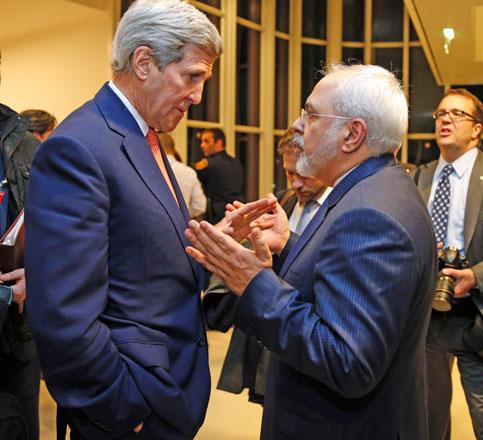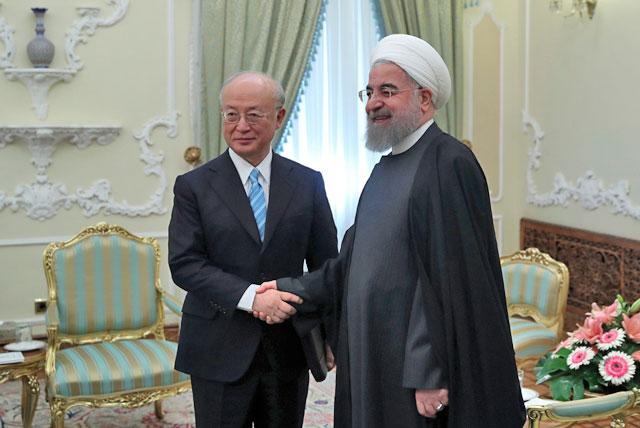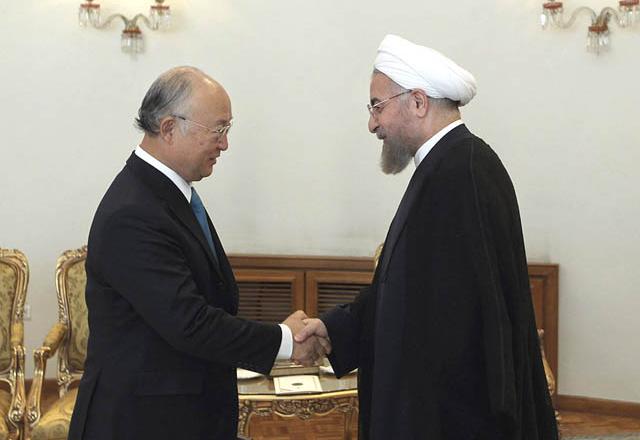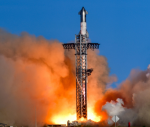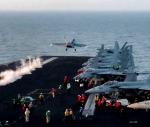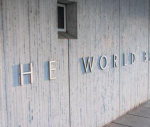You are here
Iran denounces new US sanctions on missile programme
By AFP - Jan 18,2016 - Last updated at Jan 18,2016
TEHRAN — Iran denounced new US sanctions on its missile programme on Monday but pushed ahead with international cooperation after its historic nuclear deal.
Washington announced the new sanctions on Sunday, the day after the UN atomic watchdog confirmed that Iran had complied with the measures imposed by the deal with global powers reached in Vienna in July.
World leaders hailed the implementation of the deal, and the subsequent lifting of European and US sanctions, as a milestone in international diplomacy.
But in a sign that tensions persist, the US Treasury announced it was imposing sanctions on five Iranian nationals and a network of companies based in the United Arab Emirates and China in connection with Iran's ballistic missile programme.
Iran's foreign ministry on Monday decried the new measures as "illegitimate", with spokesman Hossein Jaber Ansari insisting the missile programme has no links with the nuclear issue.
"Iran's missile programme has never been designed to be capable of carrying nuclear weapons," Ansari was quoted as saying by the ISNA news agency.
He said Iran would respond by "accelerating its legal ballistic missile programme and boosting defence capabilities".
Defence Minister Hossein Dehghan said the new sanctions would have "no effect", telling the Fars news agency: "We will prove it in practice by unveiling new missile achievements."
Cooperation on the nuclear programme was moving forward however, with International Atomic Energy Agency chief Yukiya Amano in Tehran for talks with senior officials on Iran's continued compliance with the deal.
Amano met Ali Akbar Salehi, the head of Iran's Atomic Energy Organisation, and was to hold talks with President Hassan Rouhani to discuss monitoring and verifying Iran's commitments under the agreement.
"We talked about future cooperation, especially in the new atmosphere, and we partially drew the roadmap" for continued efforts, state television quoted Salehi as saying after the talks.
'A new chapter'
Rouhani on Sunday said the implementation of the nuclear deal — negotiated with the United States, Britain, China, France, Russia and Germany — had "opened a new chapter" in Iran's relations with the world.
US President Barack Obama praised the deal as a breakthrough in diplomacy, but noted that “profound differences” with Tehran remained over its “destabilising activities”.
Warming ties between the longtime foes were also in evidence in a weekend prisoner swap that saw Tehran release four Iranian-Americans, including Washington Post reporter Jason Rezaian.
Rezaian, Christian pastor Saeed Abedini and former US Marine Amir Hekmati arrived at a US military base in Germany late on Sunday on their way home from Iran.
A fourth Iranian-American, Nosratollah Khosravi-Roodsari was also set free but chose not to leave Iran, local media reported.
Under the exchange, Washington said it had granted clemency to seven Iranians, six of whom were dual US-Iranian citizens, and dropped charges against 14 others.
Rouhani, a moderate whose 2013 election victory helped launch the huge diplomatic effort towards the deal, has promised that lifting of sanctions will give a major boost to Iran’s economy.
Iran will now be able to significantly increase its oil exports, long the lifeblood of its economy.
Concerns that fresh Iranian exports will worsen a supply glut have helped push oil prices to 12-year lows, and they plunged below $28 a barrel early on Monday.
The Vienna agreement was nailed down after two years of negotiations following Rouhani’s election.
It drew a line under a standoff dating back to 2002 marked by failed diplomatic initiatives, ever-tighter sanctions, defiant nuclear expansion by Iran and threats of military action.
The steps taken so far by Tehran extend to at least a year — from a few months previously — how long Iran would need to make one nuclear bomb’s worth of fissile material.
They include slashing by two-thirds its uranium centrifuges, reducing its stockpile of uranium — enough before the deal for several bombs — and removing the core of its Arak reactor, which could have given Iran weapons-grade plutonium.
Iran has always denied wanting nuclear weapons, saying its activities are exclusively for peaceful purposes.
Related Articles
TEHRAN — The US and Iranian presidents on Sunday hailed the implementation of Tehran's nuclear deal as historic, but new American sanctions
DUBAI — Iran has shown commitment to the deal on its nuclear programme agreed with world powers, the head of the United Nations atomic energ
Iran will reject any restraints on its nuclear operations outside the international rules set by the industry watchdog, President Hassan Rouhani said on Sunday.



